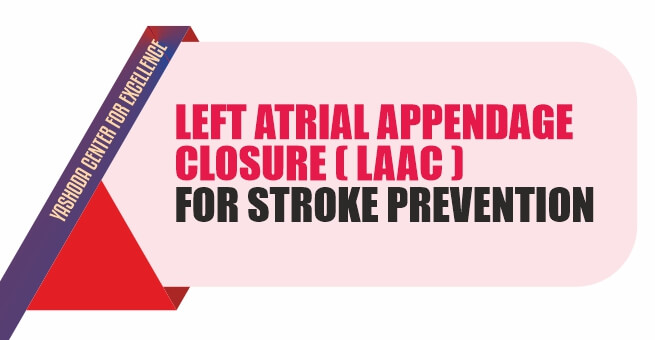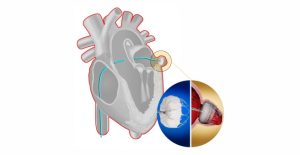Left Atrial Appendage Closure (LAAC) For Stroke Prevention

Atrial fibrillation (AF) is associated with an increased risk of stroke and systemic embolism, with the left atrial appendage (LAA) being recognized as a primary source of thromboembolic events in these patients. While oral anticoagulation remains the standard of care, left atrial appendage closure (LAAC) has emerged as an alternative or complementary strategy to reduce stroke and systemic embolism risk in individuals with AF.
Percutaneous left atrial appendage closure (LAAC) is a minimally invasive, device-based therapy in interventional cardiology for stroke prevention in patients with non-valvular atrial fibrillation (AF).

ADVANTAGES
- Minimally invasive: LAAC is a minimally invasive procedure performed in a catheterization lab under general anesthesia.
- Stroke risk reduction: LAAC can reduce the risk of stroke for a lifetime.
- No blood thinners: LAAC is a one-time procedure that eliminates the need for regular blood tests.
- No excessive bleeding: LAAC eliminates the risk of excessive bleeding associated with blood thinners.
- Permanent: The devices used in the LAAC procedure are permanent and do not need to be replaced.
- Cost-effective: LAAC is more cost-effective than Warfarin in the long term.
- High success rate: LAAC has a 95% procedural success rate and a low 1.5% major complication rate.
LAAC is a relatively new and technically demanding procedure for stroke prevention in patients with non-valvular atrial fibrillation (AF). A thorough understanding of patient-specific characteristics, along with familiarity with the unique features of dedicated LAAC devices and tools, is essential for the safe and effective adoption of this technique in clinical practice.
Yashoda Hospitals is one of the leading centers of excellence for heart care in India, with three decades of healthcare experience. Our Heart Institute includes leading interventional cardiologists, cardiac surgeons, cardiac anesthesiologists, and cardiac radiologists, all trained in advanced technologies and experienced in performing this procedure. The institute features advanced cath labs, ICUs, and ECMO that complement the expertise of our cardiologists to deliver optimal patient care in advanced, complex surgeries and procedures.





 Appointment
Appointment WhatsApp
WhatsApp Call
Call More
More